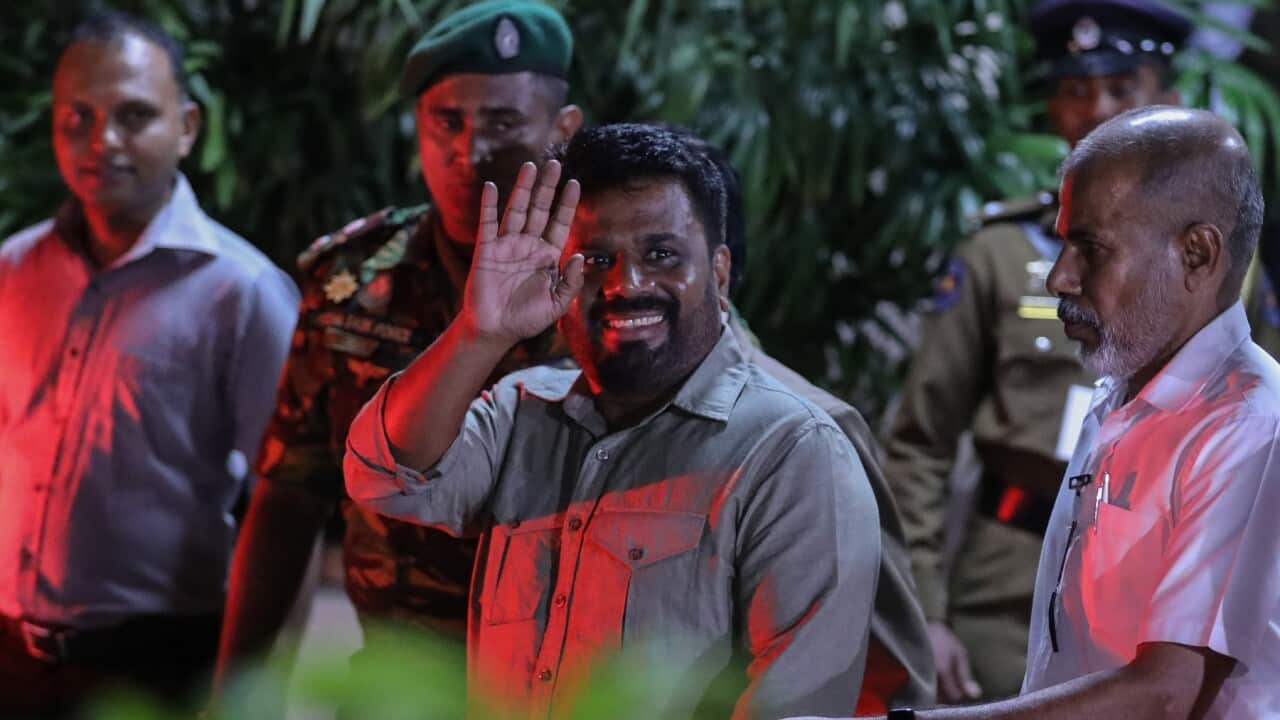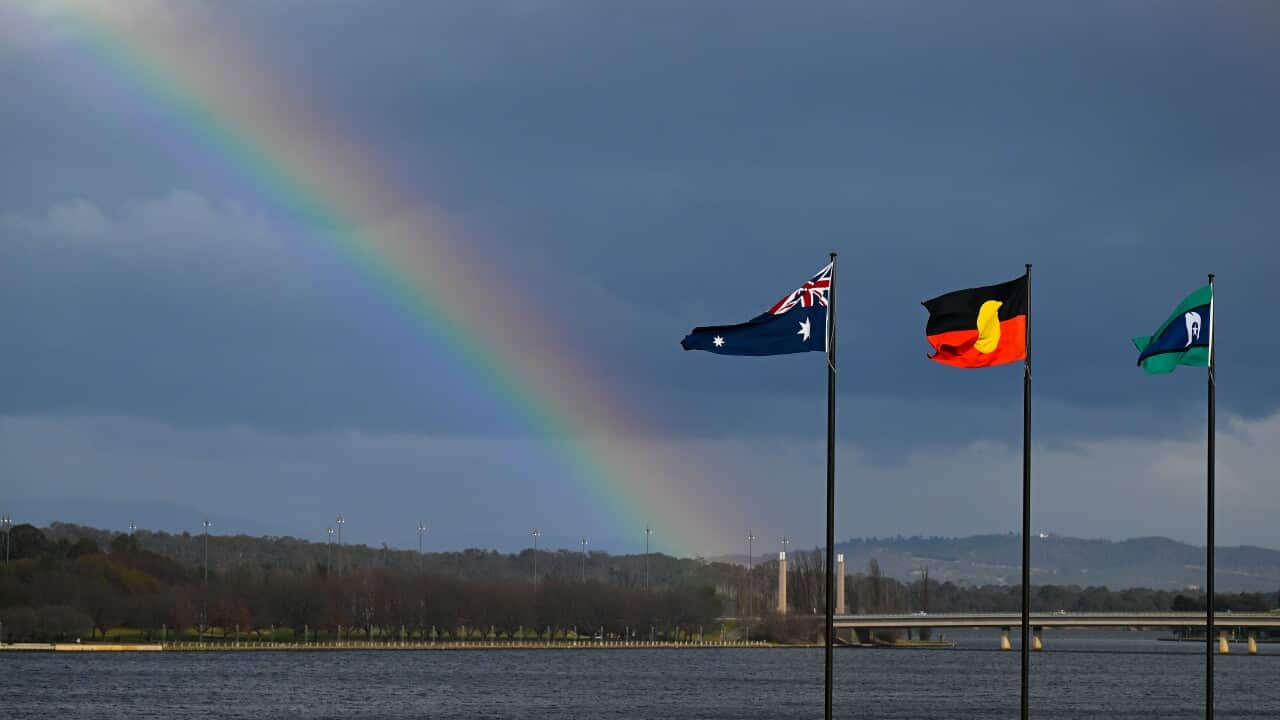TRANSCRIPT
Supporters of Anura Kumara Dissayanake [[Dih-sah-nah-yah-keh]] have much to celebrate, chanting the initials of their new President-elect.
"AKD! AKD!"
Sri Lanka has just elected Marxist-leaning Mr Dissanayake as its new president, putting faith in his pledge to fight corruption and bolster a fragile economic recovery following the South Asian nation's worst financial crisis in decades.
The Chairman of Sri Lanka's Election Commission, R-M-L Ratnayake confirmed Mr Dissayanke's win.
“In accordance with Presidential Elections Act No. 15 of 1981 - Sect 61, Anura Kumara Dissanayake, who got 5,074,179 votes, has been legally elected as President of the Sri Lanka Democratic Socialist Republic."
Mr Dissanayake, who is 55 years old, does not possess political lineage like some of his rivals in the presidential election, including incumbent President Ranil Wickremesinghe and Opposition leader Sajith Premadasa.
The election held Saturday was crucial as the country seeks to recover from the worst economic crisis in its history and the resulting political upheaval.
President-elect Dissanayake spoke after his victory which was confirmed after a second tally of votes.
“The people of our country have a great expectation for change. There are many people who took part in public protests who carry the aspirations of those protests. They wanted change and we are the agents of that change. All the other candidates are the agents of the old, failed, traditional system. We are the agents of that change and that is the reason why people should elect us to change the trajectory of the country.”
Mr Dissanayake received 5.6 million votes, or 42.3 per cent, a significant rise from the 3 per cent he secured in the 2019 presidential election.
Mr Premadasa came second with 32.8 per cent.
For the first time, the presidential race in the Indian Ocean island required a second vote count, as no candidate achieved the necessary 50 per cent in the initial tally.
Voters cast three preferential votes for candidates.
If no one wins 50 per cent in the first round, a second count decides the winner based on preferences between the top two.
Around 75 per cent of the 17 million eligible voters took part, according to the election commission.
This was the first election since the country's economic crisis in 2022, which led to shortages of essential imports like fuel and medicine, forcing President Gotabaya Rajapaksa to flee and resign amid protests.
Mr Dissanayake, says it was time for change in the country - change he vows to bring.
“There was a need for a government with a mandate from the people if you want to rescue the country from the crisis. We know in the recent past the mandate was distorted. The distortion of the people’s mandate affected the parliament and other institutions beyond that. The people’s mandate that is needed to take this country forward is being established. That was the main point of the presidential election. And I think the general election should be held immediately after.”
The election served as a referendum on Wickremesinghe, who oversaw the fragile recovery of the heavily indebted nation after its economic collapse.
However, the austerity measures essential to this recovery frustrated voters, leading him to finish third with 17 per cent of the vote.
Mohammed Nafang is a banker and holds hope that after decades of disappointment in Sri Lanka's leadership, a new day has dawned.
“This is what we want. After 76 years of that bad politicians did something bad to our country. This is the change we need. Actually we hope the new president will do something better.”
Businessman Abdul Qadir is hopeful that transfer of power will see the appointment of the younger generation of politicians.
“We will see a lot of old players will be taken off from the parliament and well educated and youngsters will come to the parliament. It’s a good opportunity for Sri Lanka to go for a proper change."













